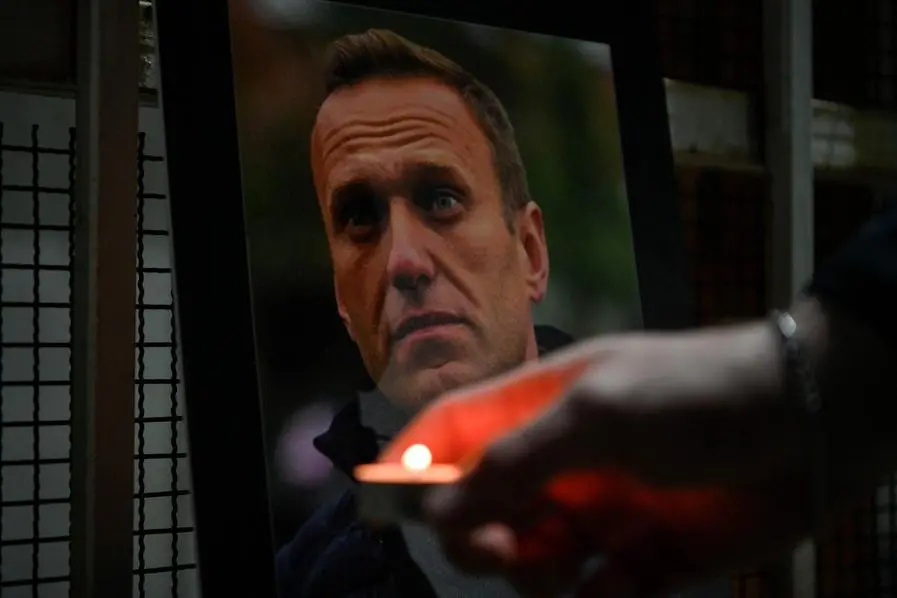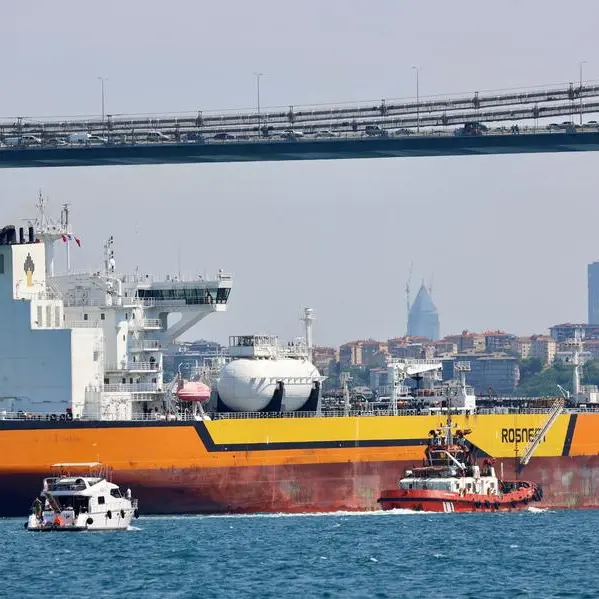PHOTO
After the shock of Alexei Navalny's death in an Arctic prison, Russian dissidents in exile are vowing to pick up the pieces and press on with their battle against President Vladimir Putin's rule.
"Of course we will cry in our bedrooms and bathrooms but publicly we'll definitely continue fighting against the regime with all our methods," Evgeny Nasyrov, coordinator of the Free Navalny campaign in Germany, told AFP.
For Nasyrov, opposition supporters must keep up the fight because seeing them "demotivated and scattered around" is exactly what Putin wants.
Nasyrov, who left Russia shortly before Putin's invasion of Ukraine, is part of Navalny's team of opposition supporters doing what they can to campaign from outside Russia.
He has been pounding the phone lines to Russia, trying to rouse people to head to the polls at noon on March 17, the final day of voting in the presidential election, in a show of strength against Putin.
"Even if people won't vote, even if they're not Russian, we want there to be crowds," said Nasyrov, who is also constantly urging people in Russia to talk about the war in Ukraine.
But while continuing the movement's activities is one thing, redefining what it stands for without Navalny as a figurehead will be a bigger challenge.
The 47-year-old was in many ways the only unifying force for a group of disparate figures bound together only by their opposition to Putin and Russia's invasion of Ukraine.
- 'Yulia has changed everything' -
Marat Gelman, a Russian art collector and gallerist who now lives in Berlin, said his emotions had been running high since the news of Navalny's death.
"At first I thought I should stop thinking about Russia, concentrate on my work and think about how to organise a new life," the longtime Kremlin critic told AFP.
But after the initial shock had subsided, Gelman found himself inspired by the courage of Navalny's widow Yulia Navalnaya.
Three days after her husband's death, Navalnaya posted a video vowing to continue her husband's fight "for the freedom of our country", rekindling the hopes of many Russians.
"Yulia has changed everything," said Gelman, who believes that Navalnaya could be an even more powerful figure than her husband, because she is a woman.
"Putin's machismo works well with men, but it does not work with women. The face of anti-war Russia must be that of a woman," he said.
"She can rely on my support," said exiled opposition politician Dmitry Gudkov, currently travelling around Europe to establish contacts with the European authorities.
"I hope this strategy will be the motivating point to coordinate our activity all together," he said.
- Energy and humour -
Gudkov, who was a guest at Navalny's wedding and once co-led demonstrations with him, said he hoped as many Russians as possible would heed the call to rally on March 17..
"We can't influence numbers in the ballot, but we can show queues of people. I hope that if millions of people gather then it could undermine the legitimacy of Putin," he said.
Although the initiative was not the brainchild of Navalny himself, he and his closest allies endorsed it in a rare display of unity for an often fractured opposition.
And although not all opposition supporters were fans of Navalny, the opposition as a whole has drawn inspiration from his energy and humour in the darkest of circumstances.
Sergei Guriev, a former economic adviser to the Russian government who now lives in exile in France, told AFP he exchanged letters with Navalny before his transfer from a Moscow prison to the remote jail where he died.
What struck him the most was "his confidence that Russia should be and will be a democratic and peaceful country", Guriev said.
Nasyrov recalled meeting Navalny in 2017, when he came to open a regional office for his movement in Chelyabinsk.
"He came only with one bodyguard, it was not enough in the crowd. I asked, 'Are you not concerned about your security?' He joked, 'Will you not defend me?'"





















